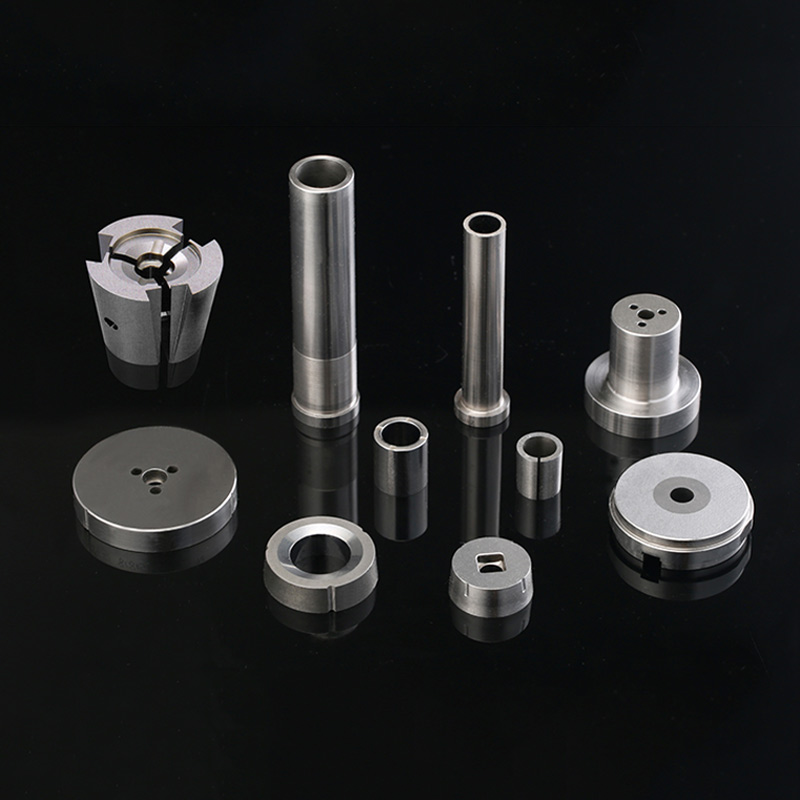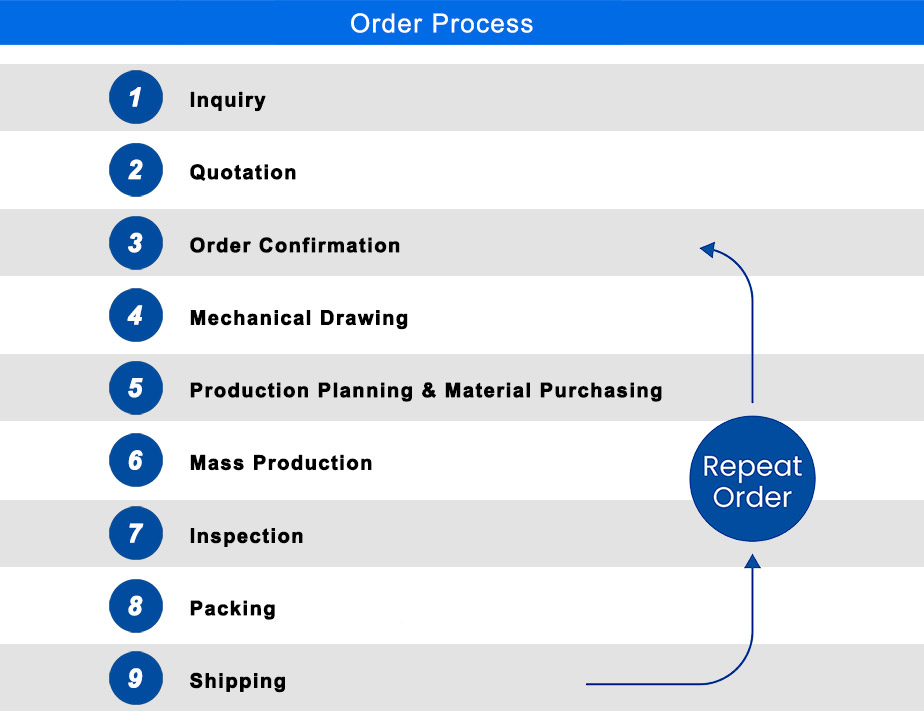Fastener Dies are essential tools for creating high-quality fasteners such as bolts, nuts, screws, and washers. These precision tools shape and form materials into the desired fastener shapes, ensuring a smooth, efficient production process with minimal defects. Whether you're involved in automotive, aerospace, or construction industries, our Fastener Dies provide reliable and efficient solutions for your manufacturing requirements.
At DONGLONG, we offer customized, high-performance Fastener Dies designed to meet the unique needs of your production process. Our dies are built for longevity, reduced downtime, and optimized operational efficiency.

Precision and Reliability: Our fastener dies are engineered to ensure the highest level of precision in the manufacturing of fasteners. We understand that every detail matters, and our dies are designed to minimize defects, ensuring high-quality outputs every time.
Durability: Manufactured with premium materials like tungsten carbide and high-speed steel, our fastener dies are built to last, even in the most demanding production environments. This ensures extended service life and reduced wear, reducing the need for frequent replacements.
Cost Efficiency: With our fastener dies, you'll experience a significant reduction in material waste and production downtime, directly contributing to lower operational costs. Investing in our fastener dies is an investment in long-term efficiency.
Customization: We offer tailored die solutions based on your specific production needs. Whether it's the size, shape, or material selection, we work with you to deliver dies that perfectly match your requirements, enhancing your production line.
Automotive Industry: Manufacture of essential fasteners like bolts, nuts, and screws used in vehicle assembly.
Construction: Production of robust fasteners for structural and mechanical applications.
Aerospace: Production of precise fasteners for aircraft and spacecraft components.
Electronics: Creation of small, intricate fasteners used in electronic devices and equipment.
Enhanced Efficiency: Increase production speed and produce high volumes of fasteners quickly, maximizing your output and reducing lead times.
Superior Quality: Maintain consistency and high precision in your fastener production, ensuring that your products meet stringent industry standards.
Cost Savings: Extend the lifespan of your dies and minimize material waste, ultimately reducing your production costs and improving your bottom line.
To ensure your fastener dies perform at their best and last longer, consider the following maintenance practices:
Regular Inspection: Conduct routine checks to identify wear and tear and ensure your dies remain in top working condition.
Cleaning: Implement proper cleaning protocols to prevent contamination and maintain the integrity of the die.
Lubrication: Use appropriate lubricants to reduce friction, enhancing the longevity and performance of your fastener dies.
Special Materials: Choose from custom dies made from specific materials like tungsten carbide or high-speed steel, designed to meet your exact production requirements.
Unique Designs: Tailored die designs to match specific fastener shapes and sizes, adhering to industry standards.
Advanced Features: Integrate modern technologies such as coatings and surface treatments to enhance the performance and durability of your fastener dies.

1.What materials are your fastener dies made of?
Our fastener dies are made from high-quality materials such as tungsten carbide, high-speed steel, and alloy steels to ensure durability and long-lasting performance.
2.How can I order custom fastener dies for my business?
Simply contact our sales team to discuss your requirements. We'll collaborate with you to design and produce dies tailored to your needs, ensuring a seamless manufacturing process.
3.Which industries benefit from fastener dies?
Fastener dies are widely used in industries such as automotive, aerospace, construction, electronics, and machinery manufacturing, providing solutions for a broad range of applications.
Maximize your manufacturing efficiency and precision with high-performance fastener dies. Contact us now to request a quote or schedule a consultation with our expert team. We're here to help you find the perfect solution for your production needs.
Fastener Dies Product Information | |
Product Name | Fastener Dies |
Brand Name | Donglong |
Place of Origin | Dongguan, Guangdong, China |
Specification | Customized on Request |
Customization | Material, size, shape, convex and concave marking, coating, laser engraving mark and packing are all customizable. |
Product Material | Carbide.ASP23 Vanadis.CPMRTXM4.SKD11SKD61HSSA2M2D2SUJ2.S45C.ect |
Standard | DIN ANSI BS JIS |
Tolerance | ±0.002mm |
Surface Treatment | TiCNTiN,Aitain,Ticrnnitriding Black oxygened Black coating etc available |
Polishness | Close to Ra0.2 Hardness Depends on material(HRC60~94) |
Hardness | Depends on material(HRC60~94) |
Shaping Mode | Grinding, wire cutting, EDM, cnc machining, cnc turning, cnc Milling |
Application | Machinery Parts and Molds |
Material for Core of Fastener Dies | ||||||
Grade | WC+Other | Co | Grain Size | Density | Hardness | TRS |
(±0.5%) | (±0.5%) | (g/cm³) | (HRA)±0.5 | (N/mm²) | ||
KG5 | 88 | 12 | Medium | 14.31 | 88.3 | 340 |
KG6 | 86 | 14 | Medium | 14.12 | 87.3 | 320 |
EA65 | 82 | 18 | Coarse | 13.75 | 85 | 300 |
EA90 | 76 | 24 | Coarse | 13.22 | 82.8 | 270 |
ST6 | 85 | 15 | Coarse | 13.8 | 86 | 270 |
ST7 | 80 | 20 | Coarse | 13.4 | 85.3 | 270 |
VA80 | 80 | 20 | Coarse | 13.58 | 84 | 280 |
VA90 | 78 | 22 | Coarse | 13.39 | 82.5 | 240 |
VA95 | 75 | 25 | Coarse | 13.12 | 81.5 | 220 |
Material for Casing of Fastener Dies | |||
Material | Hardness (HRC) | Features | Applications |
H13 | 59-61 | H13 is a chromium molybdenum hot work steel with exceptional hot hardness and abrasion resistance, general hardness, and toughness. | Used for extrusion dies, forging dies, stamping tools, etc. |
SKD11 | 58-61 | SKD11 tool steel has good wear resistance and size ability after heat treatment. | Used for tensile dies, cold extrusion dies, first punch holder, etc. |
SKD61 | 43-53 | SKD61 steel is a high-grade die casting die. It has heat shock resistance, heat deformation resistance, heat fatigue resistance. | Used for heat work dies, cold heading dies, second punch holders. |